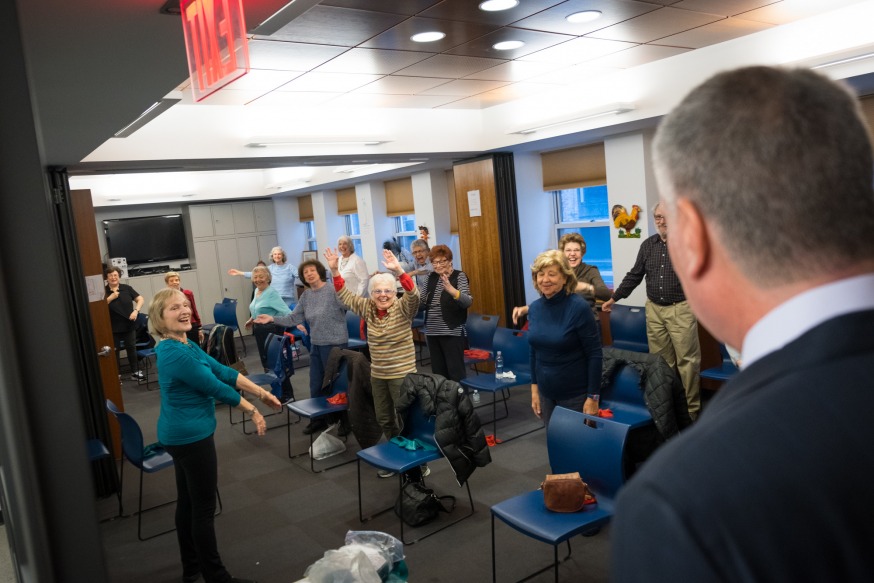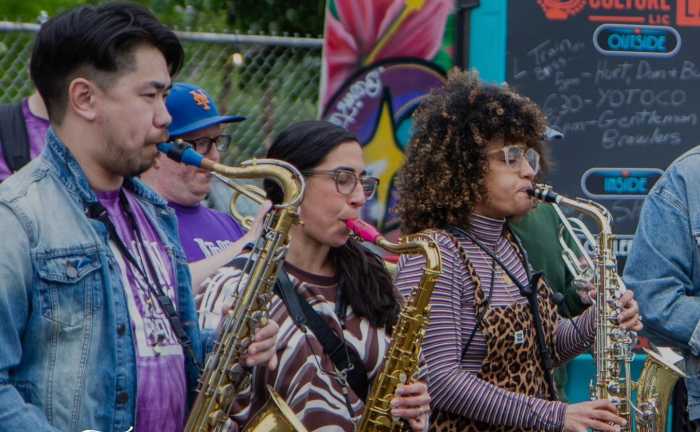
A senior center in Manhattan, shown here in 2016 (Edwin J. Torres/Mayoral Photo Office)
April 14, 2021 By Allie Griffin
The city will invest $58 million to expand services for seniors to help them stay in their own homes, Mayor Bill de Blasio announced Wednesday.
The money will be invested in the first year of de Blasio’s five-year “Community Care Plan” for older New Yorkers.
The plan calls for the creation of 25 additional senior centers across the five boroughs — specifically in communities with large aging populations that are currently underserved — as well as additional program staff, transportation services and outreach efforts.
De Blasio didn’t say what specific neighborhoods the new senior centers would be placed in.
The 25 new senior centers, also known as Older Adults Centers (OACs), will be funded by the NYC Department for the Aging. The department currently funds nearly 250 senior centers citywide.
Senior center membership is free and open to anyone 60 or older. The centers offer activities and services like transportation services, technology classes, benefits screenings, walking clubs, yoga and dance classes, art classes, free lunches, recreational trips and holiday celebrations.
The city will release a Request for Proposals (RFP) for the new senior centers as one of the first steps in the five-year plan. However, city officials didn’t say when they would release the RFP.
The Community Care Plan will also increase existing services that help older adults to remain in their homes and avoid institutionalization.
Department for the Aging Commissioner Lorraine Cortés-Vázquez said now more than ever the city should invest in efforts to allow seniors to age in their own homes.
“The pandemic highlighted the detrimental effects that living in institutions had on both older adults and their families,” Cortés-Vázque said in a statement. “This investment in Community Care will provide the continuum of services, safety net and community network that older New Yorkers need to continue living in their homes, communities and among their loved ones.”
The program announcement was praised by local legislators in Queens, where roughly 16 percent of residents are 65 and older.
“We have continually worked to improve the quality of life for our seniors and today we stand together to once again make clear that New York City is reflecting the needs of our rapidly booming senior population,” Council Member Paul Vallone said. “This investment is crucial during the pandemic to assist older New Yorkers in being able to live in their homes near friends and family.”






